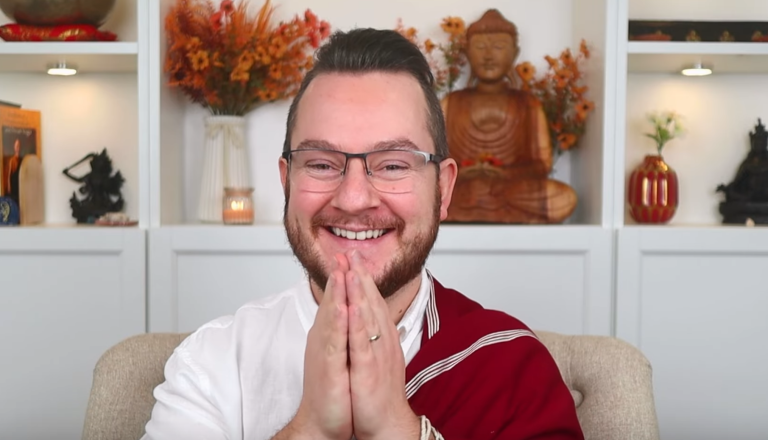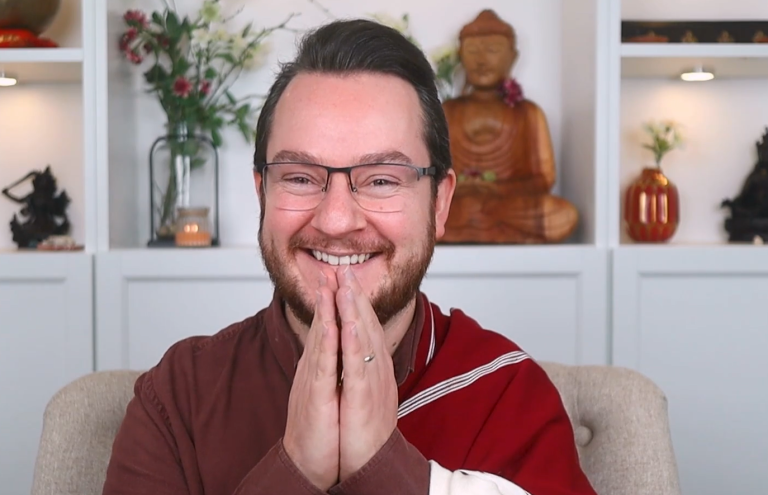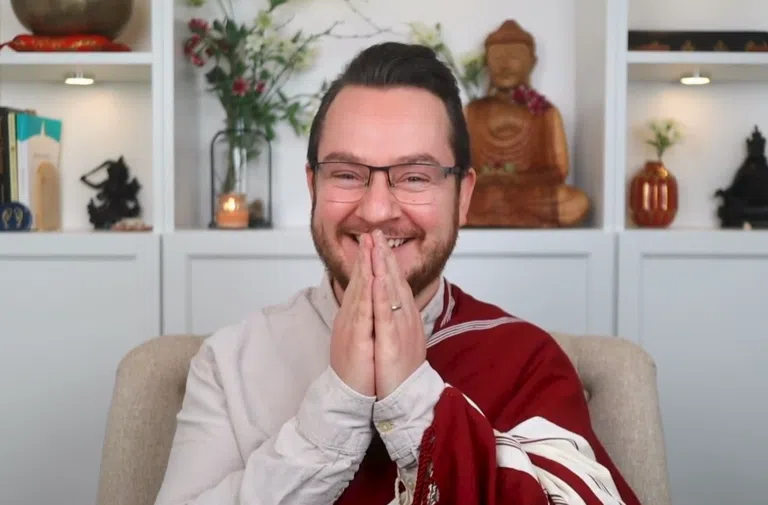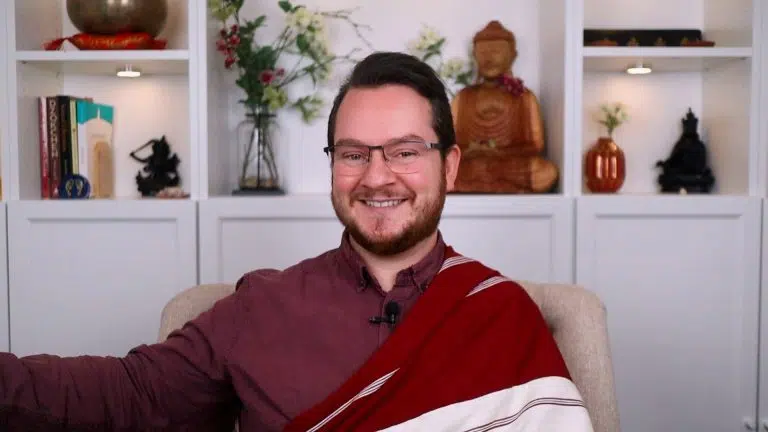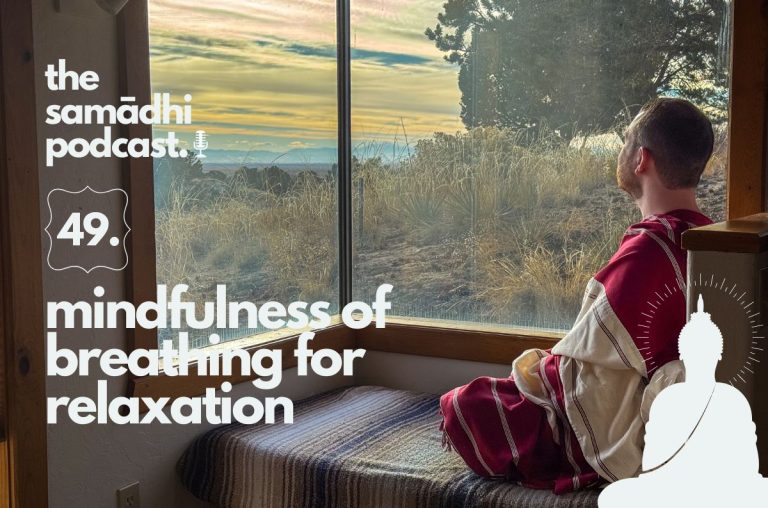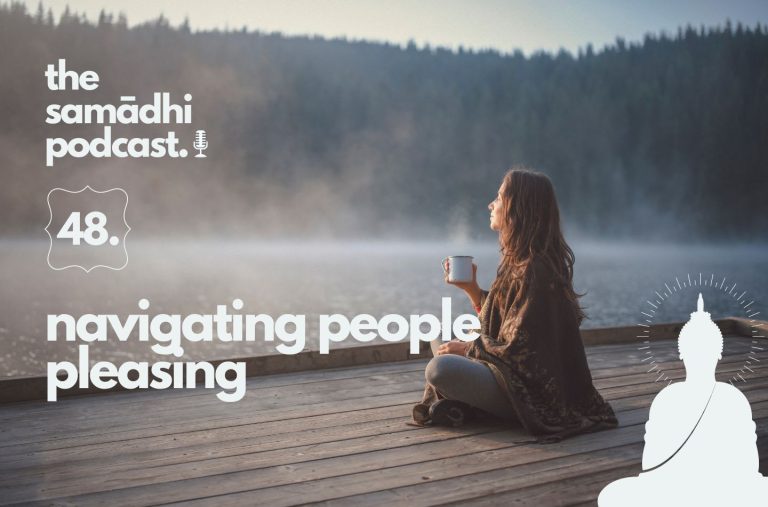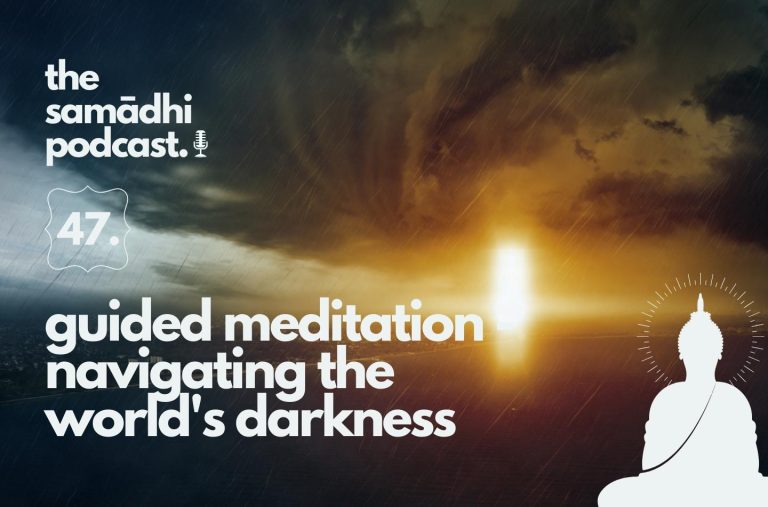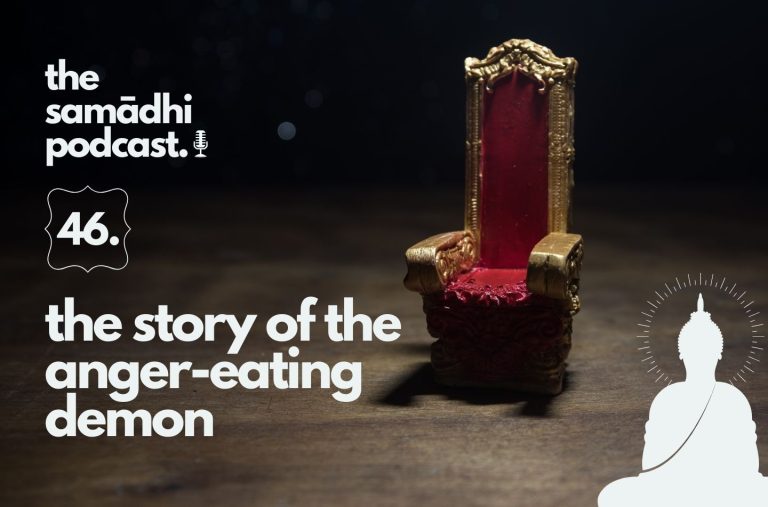Automatic Generated Transcript (may not be accurate)
These Six Paramitas, as I probably mentioned there, often translated as the six perfections. But the meaning of the Sanskrit term paramita doesn’t mean to perfect really. It means to transcend that. And so you can’t really perfect giving, can you? Because what would that look like? You know, I’ve perfected giving. And so it’s more that, you transcend the normal, the norm of giving, you know, that your your, your giving transcends that. You know, you’re beyond that.
And so these are six important mental states that we should develop. They’re not just supposed to be a nice list that we look at and think, ‘Oh yeah, that would be nice to cultivate those.’ But really, they’re supposed to be advice for daily life and they’re supposed to be things that we try and bring, try and cultivate in daily life.
And they enable us to avoid problems in the first place. They enable us to solve problems that may come up and they help us reduce and remove some of those disturbing mental afflictions, attachment aversion, anger and so on. And they empower us to be our best self, to give our best to others, to do our best, and to help others. And so these six, which we’ll be going through in a brief way, is
- Generosity
- Ethical self-discipline or morality
- Patience
- Perseverance or enthusiastic effort
- Concentration or mental balance. (Samadhi)
- Wisdom
And so generosity. Then, first of all, just very briefly, it’s not just about giving, giving material things, though it does include that, but it’s more a mental state. It’s a mental state in which you’re willing to give up that which you’re attached to. You’re willing to offer that.
And so it’s the mind overcoming attachment because it’s easy to give away what you don’t want, isn’t it? You know, you might occasionally clear out old things that you have and you think, you know, that’s easy to give away.
It’s not necessarily the mental state, the mind of giving, because it’s stuff that you don’t care about, stuff that you’re not attached to. So here’s the stuff I’m attached to; you can have all the stuff that I don’t really care about, and I’m willing to give you that. But, not this stuff. And the real mind of giving, the real generosity is willing also to give up those things.
I remember one teacher, I think it was Gelek Rinpoche who said once that you should be able to give even with that little tinge of, you know, ‘I kind of wanted that.’ So it’s this willingness to give to others in need, give material help if you can. But if you can’t, give your time, give your expertise.
So, you know, we could donate to a charity, we could offer something. We have we could offer our time to a charity or we could offer time to our teachers, to our friends, to our family. And if we don’t have anything, as many people have been practising Buddha’s teachings for 2600 years in areas that are very impoverished may not have had anything to give. But that’s no problem because it’s a mind that we’re cultivating. It’s a mental state. And so we can imagine in meditation, just as we did then, offering everything that I have, all of my good qualities, all of my skills, whatever I have, I imagine offering it. Imagine helping, how that would help other living beings, and why.
What’s the point in just imagining it? We’re not actually doing anything? It’s because we are. We are changing our mind. We’re changing our temperament, our way of being will naturally become more inclined to actually be more giving, to be more helpful when the opportunity arises. It’s changing your mind, changing your way of being so. So imagination is very, very powerful. And even if we look at the science of it, if we look at neuroscience, when you imagine vividly, you imagine yourself in a scenario, and you’re actually in that scenario physically, they look the same from the perspective of the brain. They look the same, the same feelings, the same changes in the body. And so imagination is really powerful. Visualization is really powerful to change our temperament, change our mind.
And so there’s three types of giving that are often mentioned in Buddhism. There’s the generosity with material things and so that’s ranging from giving just simple possessions, perhaps those we don’t care about, to giving us more greater things that we are attached to. The giving of material things should be practiced without any expectation of anything in return, because that’s not what it’s about. You’re not doing it so that they’ll see you as a great person or will give you something that they respect you or anything like that. You know, you’re giving just for the simple act of being generous, of helping, not because you want something. And we should really we should give willingly within our own capacity. So there are no regrets later; giving somebody the deed to your house and leaving yourself homeless will lead to, you know, some feeling of regret afterwards and also will impoverish you and you won’t be able to actually help or give anymore. You know, we have to still look after ourselves. So it’s giving within our capacity.
Then there’s generosity with the Dharma, with the dharma, the teachings. And this is about sharing some of the teachings with others. So maybe, you know, not sort of being a, you know, a preacher on top of a hill shouting at everybody, saying, this is the way. But if somebody comes to you and they’re looking for some advice or they’re struggling with something and perhaps there’s a little something you can offer, it doesn’t need to be packaged in this whole, well, this is what Buddhism says, but, ‘what I found has really helped me in this situation is if I do this’ and you’re just offering little bits to people or meditations, saying, ‘Oh, here’s a link to a meditation that really helped me’, offering some Dharma, offering some self-help, or supporting the sharing of Dharma, supporting your teachers, supporting a Dharma centre, supporting the activities of your teacher. That’s in a way, you’re helping the sharing of the dharma.
And then the third is generosity of giving others fearlessness, which means allaying the fears of others. So if somebody is really struggling in life and they’re, you know, they have a lot of anxiety and worry and fear and you’re offering that kind listening ear, offering their support, you’re helping them, perhaps there are you know, you can save insects from drowning worms drying up in the sand or, you know, you see a spider in the bath that’s about to drown, saving them. That’s offering fearlessness, that’s offering something to them to allay their fears, to allay their pain and suffering. And that’s something we can always do. There are always insects that need help because they get themselves into silly situations.
So, you know, these are broad categories, but, you know, there are many other ways that we can give within our means. We can offer our skills, our time if we have nothing else.
And so why? Why would we do this? Well, firstly, it helps others. It makes the world a better place. If we were all doing that, I’m sure it goes without saying, but the world would be a far, far better place. But then for you and your practice, it gives life meaning. It gives it value. We know that we are contributing. We’re helping. We’re involved in good activity. And that helps us with any feelings of low self-esteem, any feelings of I’m not good enough. Any of those kinds of feelings, they can be washed away. If we know our presence in the world, it’s good that we’re avoiding harm. We’re helping any feelings of loneliness, loneliness is the disconnection from others. If you’re giving, you’re offering your time, you’re helping, then that helps with that. That connection overcomes loneliness and depression as well. Depression, sadness, low mood, these sort of characteristics arise from or part of those experiences is a focus on the self, isn’t it? On what’s going on with me and it’s a sort of a contraction down inwards.
And so when we’re giving, when we’re turning to others, that’s the opposite. It’s the opposite of that experience. And so it helps with low mood, helps with sadness.
And the bigger one on the Buddhist path at least, is that it’s helping us to overcome our attachment, our miserliness, our stinginess, which are unhappy states of mind, you know, that bring us greater and greater problems.
So in life we are metaphorically and literally carrying a backpack full of our possessions and qualities which we see as valuables, you know, and they’re ours, ours alone, and we protect them fiercely. We get upset if they’re threatened. So generosity lightens that load, you know, sees we have greater peace, greater well-being if it’s not just about the one, but it’s about the collective, and we share the contents and we cherish others. It’s a way of cherishing, isn’t it? Those around us. So this is the mind of generosity.
Would you like to transcribe or edit the transcriptions of our classes? Please get in touch.

